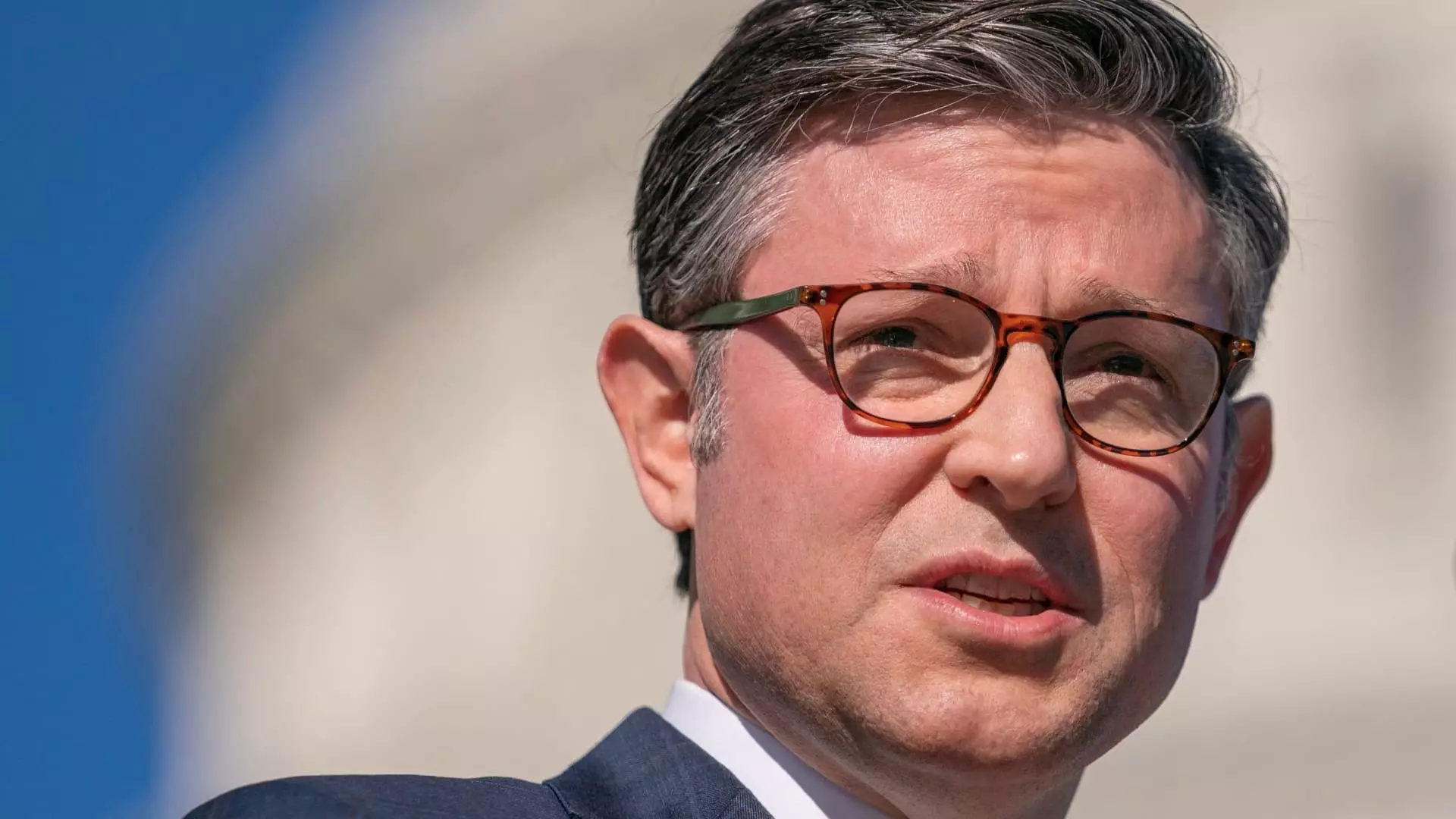The intersection of politics, ethics, and the law can often create tumultuous scenarios, particularly when individuals in power face serious allegations. Recently, the spotlight has been shining brightly on Matt Gaetz, a controversial figure whose potential appointment as U.S. Attorney General is marred by previous accusations of misconduct. This article aims to dissect the implications of these events, the responses from the political landscape, and the potential repercussions for legislative integrity.
Matt Gaetz, a former member of Congress from Florida, resigned shortly before the House Ethics Committee was set to release findings concerning allegations of sexual misconduct and illicit drug use. The abruptness of his departure raises eyebrows, particularly given it coincides with the committee’s investigation of serious allegations against him. House Speaker Mike Johnson has characterized the report from the Ethics Committee as a “Pandora’s box,” suggesting that its release could have far-reaching, unintended consequences.
Johnson’s assertion that the committee’s investigation should cease following Gaetz’s resignation reflects a broader political strategy—one aimed at shielding Gaetz from further scrutiny. This is particularly notable considering the findings, as presented in a rough draft format, were not finalized. The Ethics Committee’s primary remit is to oversee issues related to current members of Congress. As such, Gaetz’s resignation effectively nullifies any ongoing inquiry, sparking a debate over accountability and the responsibilities of Congress.
The reactions to the unfolding situation have been decidedly mixed among Republicans. While Speaker Johnson advocates for withholding the report, other Republican leaders, such as Sen. Markwayne Mullin, vehemently oppose this stance. Mullin argues that the Senate must have access to the Ethics Committee’s findings to conduct a thorough vetting process for Gaetz’s potential nomination as U.S. Attorney General. This dichotomy within the party underscores a critical rift, indicating that not all Republicans are prepared to overlook the severity of the allegations against Gaetz.
Mullin’s position reflects an essential principle in governance: the necessity for transparency and accountability, especially when considering appointments to high-profile positions within the federal government. The differing views highlight an internal struggle within the party—whether to protect one of their own or to maintain ethical integrity in the face of serious charges.
The controversy surrounding Gaetz and the Ethics Committee’s findings poses significant implications for the U.S. Senate and the broader framework of justice within the government. If confirmed, Gaetz would have been at the helm of the very agency that had previously investigated him—raising profound concerns about conflicts of interest and ethical governance. The Department of Justice is expected to uphold the law without bias, yet appointing someone with a cloud of suspicion could undermine public confidence in the institution.
In addition, the continual balancing act of political allegiances and ethical considerations strains the credibility of legislative processes. Allegations of misconduct, especially involving minors, should be treated with utmost seriousness—a sentiment echoed by legal representatives who have called for the release of the Ethics Committee report. Such calls for transparency are essential to ensuring justice and affirming the commitment to ethical standards in governance.
As the dust settles on Gaetz’s resignation and the stalled investigation, it raises deeper questions about the accountability mechanisms within Congress. The current political climate often sways toward partisanship, with leaders prioritizing party loyalty over ethical integrity. This case illustrates a crucial juncture in American governance where steadfast adherence to ethical standards must prevail, regardless of political affiliations.
The fate of Matt Gaetz serves as a microcosm of the broader integrity challenges facing modern American politics. It is imperative that the voices advocating for transparency prevail, reinforcing the notion that no individual, regardless of their political status, is above the law. As this situation continues to unfold, the lessons learned will hopefully pave the way for a more ethical framework within political spheres, ensuring accountability remains central to governance.


Leave a Reply